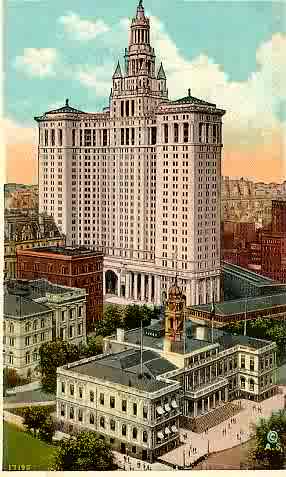On Friday night, my father died. My brother and I held his hands.
He fought for life, we fought for his life, and when it became clear he couldn't survive, we fought for every drop of morphine to ease him. We had to fight for it; the Puritanical medical system in this country demands that a terminal patient not be given so much morphine as to be bad for his health ("We wouldn't want to 'push him over'").
The cardiologist who had prescribed the drug which gave my father Rhabdomyolysis, called us into the conference room to give us "the talk." Rather than look at "Doctor Z," as he calls himself, I looked at my brother's shaking hands.
The cardiologist's talk was interrupted by his cell phone. He answered it. The ER. He went to the house phone across the hall, ostensibly for either his privacy or ours, called the ER and berated them theatrically and very loudly for interrupting him. I suspected this was some sort of performance for our benefit. I'd already had the experience of Dr. Z's not returning my calls, blaming his staff for screwing up my number, and telling me "I verbally admonished them." That had set me wondering: how else would he admonish them? And if the receptionist made an honest mistake, how much admonishment did that merit?
We had the rest of the talk. Papa-san's condition was not going to improve. We should consider hospice. It didn't mean he wouldn't get treatment, just that he would be kept comfortable. We all wanted him comfortable.
"I know, it's hard," said Dr. Z., and patted my arm. He got up. "It's hard for me too." And off he went.
Hard for him too!
I'd already punished Dr. Z. in my own way by dreaming about him as a sleazy 70's bachelor with a pouffy frosted hairdo. Office like a bachelor pad with burnt orange shag rugs, chrome floor lamps and naugahyde chaise longues. A more suitable environment for being handed a line of BS.
It was an unquiet death. The first dose of morphine put him out for hours, and I'd hoped he would be kept floating on a nice, puffy pink morphine cloud, but he never, never again had enough morphine to put him on his cloud.
He stirred restlessly. I won't say just how. But, "I don't know what's going on in there," I said to the nurse who'd arrived with his next dose. "And you will never know," she said with an odd smile. She had "morphined" her father. "Morphine's a nice drug," she said.
Most of the nurses were extroardinary beings, empathic to him and us. Every time he got a dose which relieved him, it was as if the whole family got it. But there was a young "nurse-scholar" who didn't seem to understand that our father's comfort was the priority. He let his patient languish; when it was time for the next meds, the nurse-scholar was nowhere to be found. He was off the floor. He'd gone to lunch without telling anybody. It was over the new year, we explained that we couldn't get our father into hospice over the holiday, and this nurse-scholar, having finished his shift, cheerfully said, "Happy New Year!" to us, and left. The next day, he was once again Dad's nurse. We finally had to ask that he be removed. After he was, it was better. But our father was never, never, peaceful. Never easy. He'd never been easy on himself, and he wasn't now.
But it's over. No use conjuring up all the bad images. We have thousands of pictures of healthy Papa-san all over the world, having fantabulous times: the cities he saw, the friends, the meals--he took pictures of every plate of oysters he ever ate. I see him before me, healthy, in his green corduroy jacket and too-loud tie, rubbing his hands together, anticipating sitting down with us to smoked salmon and duck eggs and arguing over the meaning of the word "isinglass."
He had a few more years in him. Carelessness took them away. But the years he had, we had, how wonderful they were.
James Fishback: Scandals And Controversies
1 month ago



